Brewers have traditionally used hop pellets as a means to flavor their beers. Dried hops are compressed into small pellets that separate some of the vegetal matter and concentrate the lupulin, which holds the essential oils giving the beer its flavor.
The industry has come a long way to include more innovative advanced hop products, providing brewers with options for more impactful flavors. Concentrated pellets, soluble products, oils, and frozen fresh hops have added a new playing field for brewers. With so many new products, it can be challenging to understand the differences and reasons why you might want to brew with one of these products.
This article will deeply dive into the different advanced hop products, why you might brew with them, and how to experiment with them. Consumers are craving new and exciting flavors. Advanced hop products can help brewers achieve those flavors while gaining efficiency.
Hop extracts are not new to the craft beer industry. For years, brewers relied on three main products to deliver unique flavors while ensuring bitterness. Hop pellets, CO2 extract, and whole leaf bales were combined to achieve efficiency and quality.
However, using pellets and whole-leaf bales can create issues with possible hop creep due to the enzymatic activity that can come from the vegetal matter and high absorption rates.
Hops contain a combination of essential oils, alpha acids, and other compounds, such as polyfunctional thiols. In the last five years, companies like John I. Haas, Yakima Chief Hops, and Hopsteiner have invested heavily in developing products that isolate these compounds to target the specific needs of brewers.
Some products provide a smooth bitterness, while others offer unique aroma combinations. The benefits remain relatively the same across the board, whether the advanced product be a concentrated pellet, extract product, or stabilizer.
Pros of Using Advanced Hop Products
- Consistency and standardization
- Maximizes flavor by using less vegetative matter
- Lower wort absorption levels
- Clean bitterness
- Lower shipping and storage costs
As brewers face rising costs in their supply chains, finding greater efficiency is necessary. By using advanced products, brewers can often increase their yields significantly. This translates to real dollars, especially if the beer is also canned, which can improve overall yield loss.
So, with the influx of advanced hop products, how do you decipher between them?
Advanced hop products can be divided into three categories: flavor and aroma products, bittering products, and brewing solutions. The driving category and most popular at the moment is, of course, flavor and aroma products.
Flavor and Aroma Advanced Products
Concentrated Pellets
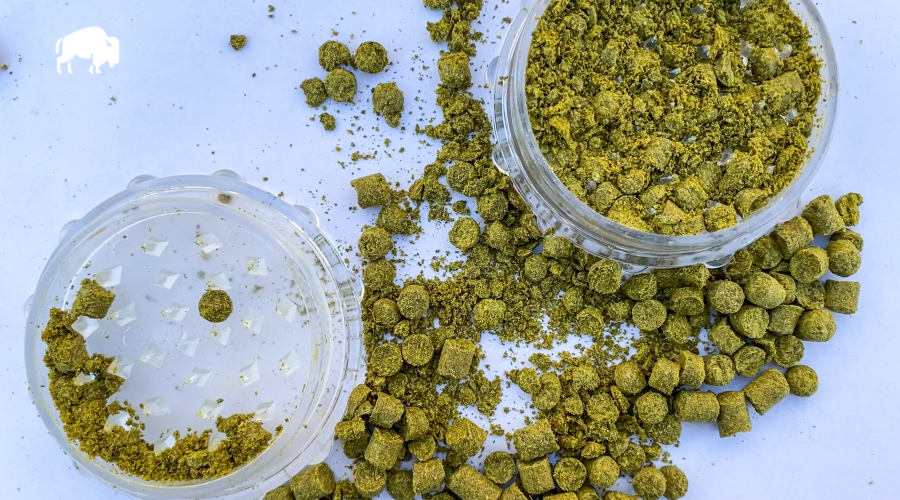
The most straightforward advanced hop products come in a concentrated pellet. Traditionally, brewers use T-90 pellets, meaning 90% of the cone weight remains after going through a pellet die.
In a concentrated pellet, that percentage is lowered to anywhere between 45% and 75% or also referred to as a T-45 pellet. It’s less common to see a number-pellet aside from a T-90 or T-45, but that’s where these new concentrated pellets come into the picture.
John I. Haas, Yakima Chief Hops, and Crosby Hop Farms have all released their versions of concentrated pellets in the last five years. Though similar, each dealer uses a different process to achieve their concentrated pellet and offers varying benefits.
Haas released Lupomax in 2020 to give brewers a consistent, true-to-type, and varietal-specific pellet with less vegetative matter and increased aroma. Haas’ sensory team evaluates and selects the best lots of hops to combine for Lupomax each year. While not a doubling ratio, Lupomax provides brewers with consistency and standardization.
Yakima Chief Hops released Cryo in 2016, well ahead of many others in the industry. Through a cryogenic process, YCH uses a “nitrogen-rich” environment to separate the lupulin and bract. This results in nearly twice the amount of resin a traditional T-90 pellet uses. Unlike Lupomax, Cryo does not appear to be crop-year specific.
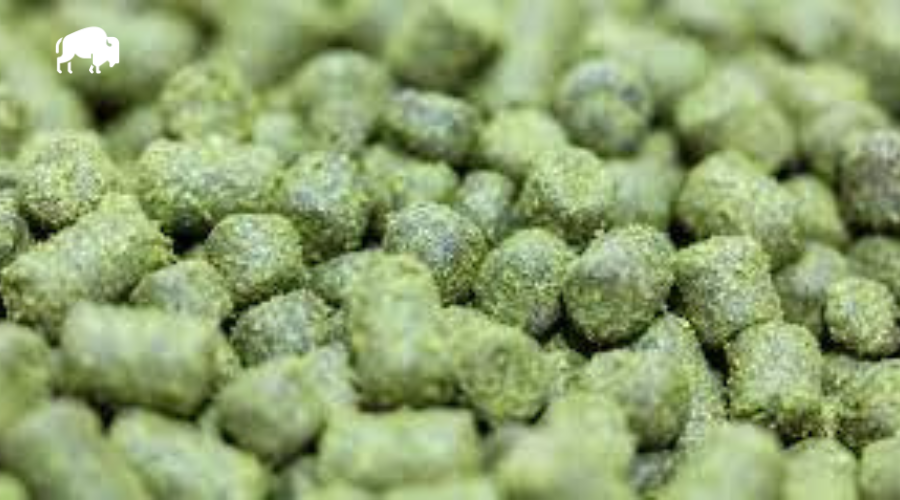
In the last two years, Crosby Hops has also ramped up its production and release of CGX pellets. Available in 14 varieties, CGX goes through a similar cryogenic process that uses nitrogen to separate the vegetative matter from the lupulin.
Recently, Crosby released a video sharing the entirety of the CGX process. This is usually unheard of in the industry, as many companies keep these processes private.
These pellets achieve a similar goal – less vegetative matter for more lupulin, leading to more impactful aromas.
Oils
The next category of advanced hop products digs deeper into the cone. Lupulin glands are filled with hop acids and essential oils, carrying the aromas we often taste in beer. Many companies have focused on building products that extract essential oils from specific varieties to create a highly concentrated liquid product.
United-Kingdom-based Totally Natural Solutions has created several lines of 100% hop-derived oil products that brewers can use to replace pellets or whole cone hops. The oil comes in small vials with specific instructions on dosing.
Similarly, because the oils take up far less space than a pellet, these products usually reduce beer loss.
Another company, Glacier Hops Ranch, uses a steam distilling process to extract essential oils. HopZoil differs from other oil products because it’s derived from fresh hops during harvest rather than whole cones or pellets.
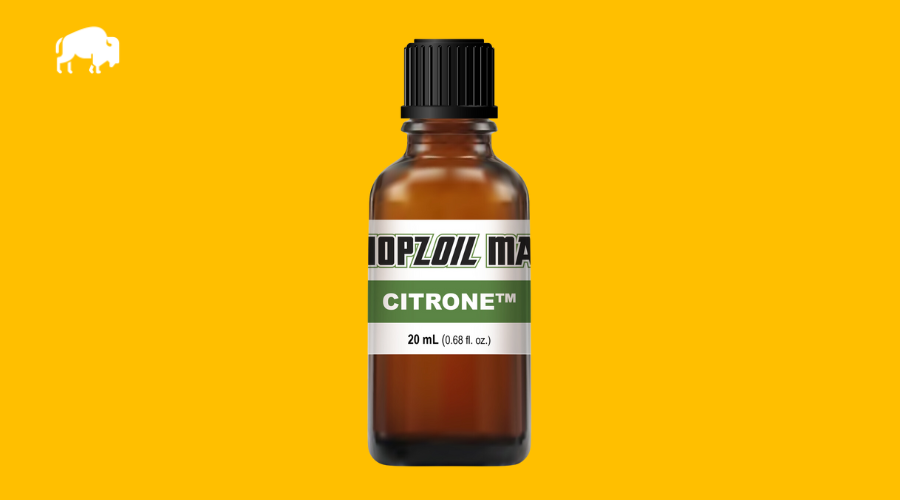
Both companies offer varietal-specific products along with custom blends to achieve flavors of citrus or other fruit blends.
Aside from beer, oils can also be helpful for brewing hop water. The lack of vegetal matter, straight aroma, and solubility make oils great for imparting hoppy flavors in water.
Flowable Products
With oils, brewers only need a small amount. While those products are technically flowable, several others better fit the category. These include flavor-forward products like Incognito and Sprectrum from John I. Haas and Salvo from Hopsteiner.
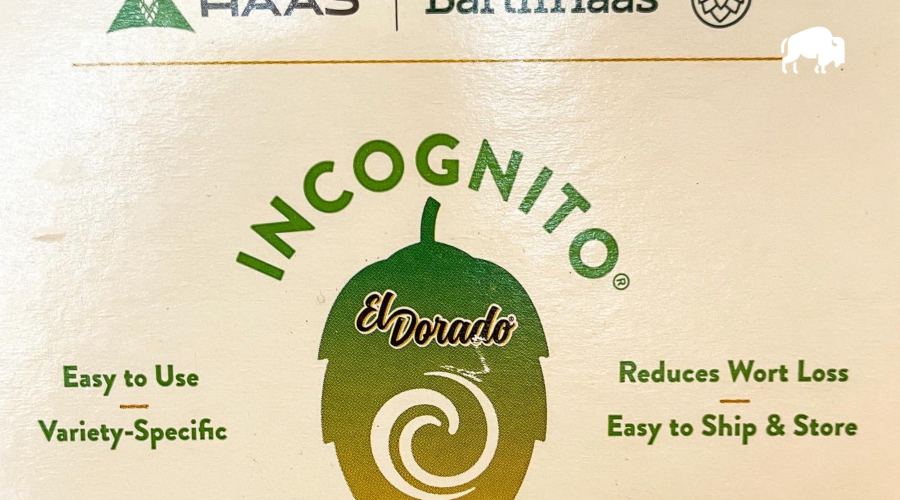
Incognito is a 100% hop-derived and varietal-specific flowable product containing zero vegetative matter. The product can go into the wort at ambient temperature without heating it up. Haas offers varieties like El Dorado, Centennial, Citra, Mosaic, and Chinook in Incognito.
On the other hand, Spectrum is a cold-side product with limited varieties available. Similarly, it is 100% hop-derived and results in a reduction in beer loss.
Haas’ partnership with Yakima Valley Hops has created smaller packed versions of their products. This allows brewers of all sizes to brew with their advanced products.
Both products above contain alpha acids, which can leave trace bitterness. Hopsteiner, however, released a product called Salvo that focuses on beta-acid extractions.
Salvo is a pourable CO2 extract product highlighting the essential oils and beta acids from hops. Hopsteiner aimed to create a product that gives brewers a big punch of aroma with little to no bitterness. Salvo must be pre-warmed before being added as a late kettle or whirlpool addition.
Flowable products continue to be popular amongst brewers for their ease of use, minimal storage needs, and intense aromas that lend to more nuanced and defined flavors in beer.
Phantasm Powder
Most recently, polyfunctional thiols have become increasingly popular. Thiols are organic compounds found in hops and grapes but typically need to be unlocked in some way to release their intense aromas and flavors.
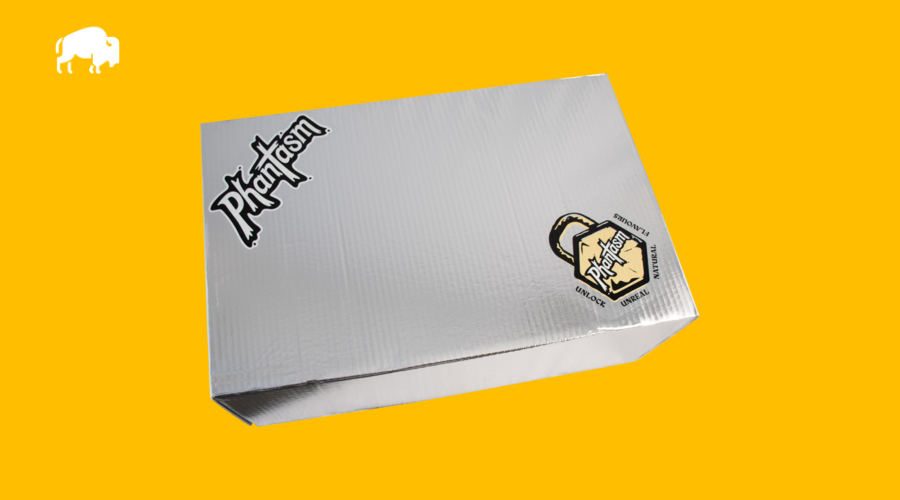
To unlock thiols, brewers usually need to use a modified yeast strain. Omega Yeast, a predominant yeast supplier, has created a series of thiolated yeast strains that are genetically coded to convert the thiols, resulting in strong flavors. Common strains in this series are Berkeley Tropics, Omega Cosmic Punch, and London III.
While thiols occur naturally in hops, brewers may want to enhance the flavors in their beer. The owner of Garage Project Brewing out of New Zealand released a powder product called Phantasm Powder that is rich in thiols derived from Sauvigon-blanc wine grapes.
Phantasm works alongside hops with high thiol concentrations and must be used with a theologized yeast strain. Brewers typically use Phantasm in the whirlpool before fermentation.
If you want to add intense flavors and aromas, Phantasm is the way to go. It can produce flavors not often found by traditionally combining hop varieties or other advanced products.
Frozen Fresh Hops
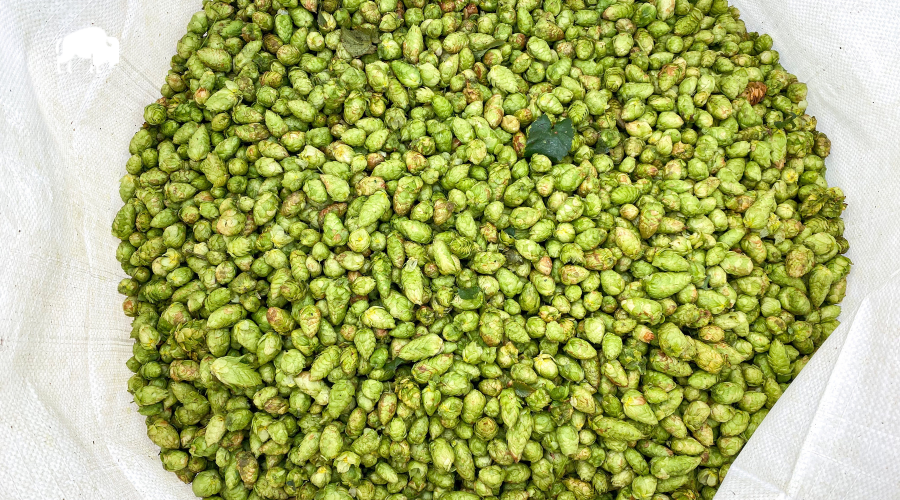
Typically, fresh hop beers, which are brewed with pre-kilned hops, are limited to around harvest time. Hop cones desiccate quickly and easily, limiting the timeframe for brewers’ use.
In 2021, Yakima Chief Hops released Frozen Fresh Hops. The company took its process used to make Cryo and applied that to pre-kilned hops. The flash-frozen cones preserve the lupulin and bract, making them available for brewers year-round.
This has also allowed brewers who live far from hop-growing regions to brew with fresh hops. Limited varieties are offered, but favorites like Citra, Mosaic, and Simcoe are available.
What’s next?
There are tons of different hop products on the market, giving brewers plenty of options. Before trialing these products, an important note is that they are more costly than traditional pellets or whole cones. The savings on beer volume and shipping and storage costs may balance the price, but it’s essential to know that these products will be more expensive than traditional pellets.
While extract products have been used for decades, the industry continues to see innovation in flavor and aroma products. The advantages of using a downstream product can include greater yields, lower shipping and storage costs, cleaner bitterness, or give your customers a new beer experience.
More products are available at your disposal than provided here, but this gives you an idea of where the industry is moving.

